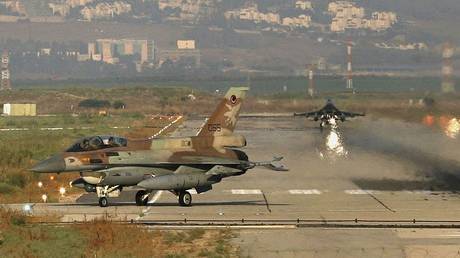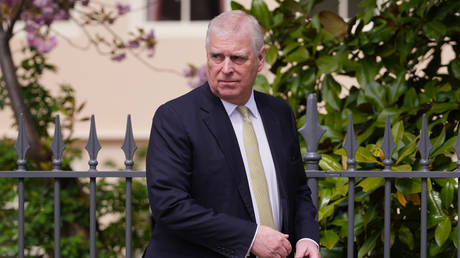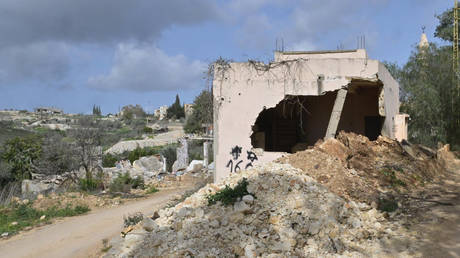
The IDF has reportedly approved plans for a ground operation against Hezbollah
Israel Defense Forces (IDF) jets have bombed several Hezbollah targets in southern Lebanon, West Jerusalem announced on Tuesday evening.
Earlier in the day, Hezbollah released a video of what it says are its spy drones flying over northern Israel and filming the port of Haifa, apparently untouched by air defenses or interceptors.
The IDF announced it had “successfully intercepted a suspicious aerial target in the coastal area of Gesher HaZiv,” a kibbutz near the Lebanese border.
“[Israeli Air Force] fighter jets struck a number of Hezbollah terror targets in southern Lebanon, including several terror infrastructure sites in the areas of Taybeh, Odaisseh, and Jibbain, as well as a military structure in the area of Ayta Ash Shab,” the IDF said on Telegram, alongside two videos of the airstrikes.
Since the Israeli attack on Gaza triggered by the October 7 Hamas raid, Hezbollah and the IDF have exchanged intermittent rocket fire across the Lebanese border, displacing more than 53,000 Israelis and 95,000 Lebanese.
Earlier this month, Israeli President Isaac Herzog warned that his country would soon have to do something about what he termed “terrorist aggression.”
On Tuesday, the IDF announced that it had finalized “operational plans for an offensive in Lebanon,” citing Northern Command head Major-General Ori Gordin and head of the Operations Directorate, Major-General Oded Basiuk.
Meanwhile, Foreign Minister Israel Katz said Israel was “very close to the moment when we will decide to change the rules of the game against Hezbollah and Lebanon.”
“In a total war, Hezbollah will be destroyed and Lebanon will be hit hard,” Katz said in a statement, responding to US calls for restraint and diplomacy.
Israel and Hezbollah fought a 34-day war in 2006, triggered by a cross-border raid into Galilee by the Shia militia. After weeks of inconclusive artillery exchanges, the IDF launched a ground offensive into Lebanon that “did not result in military gains and was not completed,” according to the Israeli commission that later compiled a report on the conflict.
The Winograd Commission criticized the government for “serious failures of the decision making process” and for not setting realistic objectives or an exit strategy. Though West Jerusalem claimed victory on that occasion, the conflict has since been widely understood as a triumph for Hezbollah.




